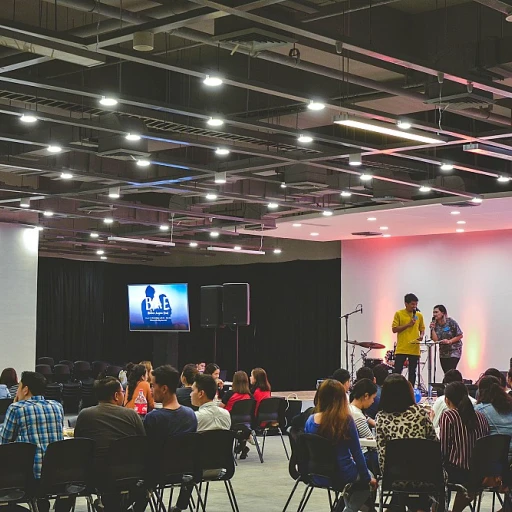
Understanding the Role of Medical Home Networks
Grasping the Importance of Medical Home Networks
In the rapidly evolving healthcare industry, Medical Home Networks (MHN) play a crucial role in coordinating comprehensive patient care. These networks are designed to provide a centralized model of health services, prioritizing patient-centric care through a collaborative approach. As MHNs work to enhance the quality of healthcare, they require a diverse talent pool including registered nurses, allied health professionals, and travel nurses. Medical homes emphasize a team-based care model, facilitating better communication and support for patients. This approach not only improves patient outcomes but also fosters a great place to work for healthcare professionals, offering them an avenue to connect and collaborate with other experts in the field. Creating an effective talent network is essential for these organizations. Ensuring that healthcare staffing meets the demands of both long-term and locum tenens services is critical, especially in the dynamic landscape of healthcare in the United States. The successful recruitment of qualified professionals supports the longevity and efficiency of medical home networks. An understanding of the role MHNs play in the broader healthcare system can lay the groundwork for addressing recruitment challenges and ultimately enhancing talent acquisition strategies. For more insights on the evolving staffing landscape, referring to resources that explore the future of contingent staffing can provide additional context and guidance.Challenges in Recruiting for Medical Home Networks
Recruitment Challenges in Medical Home Networks
Recruiting for medical home networks (MHNs) presents unique challenges that are distinct from other sectors in the healthcare industry. These networks are designed to provide comprehensive patient care, often requiring a diverse team of healthcare professionals, including registered nurses, allied health professionals, and locum tenens. The goal is to ensure seamless care coordination, which can be difficult when faced with talent shortages.
One major challenge is the high demand for specialized healthcare professionals. With the increasing need for patient-centered care, MHNs must compete with other healthcare facilities to attract top talent. This competition is particularly fierce in the United States, where the demand for healthcare staffing is at an all-time high.
Another hurdle is the need for cultural fit within the team. MHNs thrive on collaboration and communication, making it essential to find candidates who not only possess the necessary skills but also align with the network's values and mission. This cultural alignment is crucial for maintaining a great place to work and ensuring high-quality patient care.
Moreover, the recruitment process can be hindered by geographical constraints. Many MHNs operate in specific regions, limiting their access to a broader talent pool. This is where travel nurses and locum tenens can play a vital role, providing flexibility and filling gaps in care services.
Finally, the complexity of healthcare regulations and privacy policies adds another layer of difficulty to the recruitment process. Ensuring compliance while managing a talent network requires a strategic approach to talent acquisition.
For those interested in exploring innovative solutions to these challenges, exploring the most common campus recruiting software can provide valuable insights into optimizing recruitment strategies.
Effective Talent Acquisition Strategies
Unveiling Winning Strategies for Effective Recruitment
In the realm of healthcare, where medical home networks (MHNs) operate, crafting talent acquisition strategies becomes both an art and a science. With the increasing demand for healthcare professionals, coupled with unique industry challenges, the need for innovative and effective recruitment strategies is paramount. First, it's essential to understand that recruitment is more than just filling positions. It's about finding individuals who not only have the required skills but also resonate with the organizational culture, and can provide exceptional patient care. This starts with crafting a strong employer brand that attracts the right candidates for your team. Moreover, building relationships is crucial. Establishing a connection with potential candidates through career fairs, professional conferences, and social media platforms such as LinkedIn can set the stage for future collaborations. Creating a comprehensive recruitment website dedicated to talent acquisition helps in providing potential candidates with information on why the medical home network is a great place to work. Additionally, expanding your reach by tapping into allied health professionals, travel nurses, and locum tenens can help address short-term staffing needs. These temporary solutions will provide the much-needed flexibility and scalability in staffing, allowing MHNs to maintain continuity in care. Furthermore, candidate experience should be at the heart of your recruitment process. Streamlining application processes, maintaining transparency, and providing timely feedback can significantly enhance the candidate's perception of your organization. A positive experience will not only help in attracting aid but also in retaining quality talent. Lastly, ensuring compliance with the industry's regulations regarding privacy policies and candidate information handling is critical. With a digital-first approach, healthcare staffing agencies can leverage technology, including artificial intelligence, to streamline recruitment processes. Leveraging automation tools can help in reducing the administrative burden, allowing HR professionals to focus on developing relationships with potential hires. For more insights on enhancing your branding with effective management services, explore this insightful article. Embracing these strategies will not only lead to attracting top-tier talent but will also ensure a thriving, responsive health care system that is equipped to meet the diverse needs of its patients.The Importance of Cultural Fit in Recruitment
The Integral Role of Cultural Alignment in Recruitment
In the complex arena of healthcare, finding the right talent for a Medical Home Network (MHN) goes beyond mere skills and qualifications. Cultural alignment is an essential aspect that significantly impacts the quality of patient care and team cohesion. Understanding the culture of your healthcare organization can be a cornerstone in crafting an effective recruitment strategy. A MHN, composed of registered nurses, locum tenens, travel nurses, allied health professionals, and other vital roles, relies heavily on individuals who are not only competent but also share a commitment to the organization's values and mission. A workforce aligned with the organization’s culture is more likely to thrive, elevate patient care, and contribute positively to the team dynamics.- Finding the Right Fit: It's crucial to assess potential hires not just on their qualifications but on whether they resonate with the core values of your healthcare network. This can involve behavioral interviews, cultural assessments, or discussions around real-life scenarios they might encounter at work.
- Enhancing Teamwork and Collaboration: A cohesive team is one where members share mutual goals and respect for each other's roles. Aligning talent acquisition with cultural fit ensures that your team members, whether they're involved in direct patient care or supporting roles, can work harmoniously towards common objectives.
- Reducing Turnover: One of the leading causes of staff turnover in the healthcare industry is a misalignment between a worker’s expectations and the organizational culture. By prioritizing cultural fit during recruitment, you increase job satisfaction, which in turn, decreases turnover rates.
- Delivering Quality Patient Care: Healthcare professionals who understand and embody the culture of their network can offer more personalized, empathetic care. This understanding fosters trust between patients and providers, enhancing the overall reputation of the medical home as a great place to receive health services.
Leveraging Technology in Recruitment
Harnessing Technology for Recruitment
In the landscape of talent acquisition, technology plays a pivotal role, especially within the medical home network (MHN). By leveraging cutting-edge tools, MHNs can streamline their processes and enhance the efficiency of hiring healthcare professionals, including registered nurses, allied health personnel, and locum tenens. Today, an effective talent acquisition strategy must integrate technology to navigate the complexities of healthcare staffing. Here are some ways technology can be utilized:- Automated Systems: Utilize recruitment software to automate application tracking, schedule interviews, and manage candidate contacts. This can significantly reduce the time-to-hire and improve the candidate experience.
- AI-Powered Analytics: Through artificial intelligence, medical homes can access insights that help predict staffing needs, identify top talent, and understand the availability of travel nurses and other healthcare professionals in the United States.
- Virtual Recruitment Events: Host online job fairs and webinars to reach a broader audience and engage potential candidates worldwide. These platforms enable recruiters to interact with candidates in different regions, making it easier to connect with those who may consider nursing or healthcare positions.
- Data Privacy and Security: Ensure that recruitment platforms comply with data privacy policies, protecting candidate information while maintaining trust and integrity in the talent acquisition process.
- AI-Based Matching: Implement AI solutions to match candidate skills with job requirements, ensuring a better cultural and operational fit for the organization and improving patient care outcomes.
Building a Talent Pipeline for Future Needs
Developing a Robust Talent Pool for Ongoing Success
Building a talent pipeline is a strategic approach that ensures medical home networks (MHNs) are equipped to meet future staffing demands. In the competitive landscape of the healthcare industry, having a proactive strategy to source and retain talent is crucial. A continuous supply of skilled healthcare professionals, including registered nurses, allied health providers, and healthcare staffing roles like locum tenens and travel nurses, can make a significant difference in maintaining patient care standards. This strategy involves several key actions:- Identify Future Needs: MHNs must anticipate what their future staffing needs might be, considering factors like expansions, retirements, or changes in healthcare delivery models. Understanding these needs allows for targeted talent acquisition efforts.
- Engage with Educational Institutions: Establish partnerships with nursing schools, universities, and training centers. This creates a direct pathway for new graduates into the network, ensuring a fresh influx of competent healthcare professionals into the care team.
- Create a Network of Contacts: Having a broad talent network is beneficial. Attend healthcare conferences, career fairs, and engage on professional platforms where potential talent can be found. A diversified contact pool helps place work candidates efficiently when vacancies arise.
- Promote Cultural Fit and Workplace Environment: As discussed in other sections, cultural fit is pivotal. Highlighting MHNs as a great place to work with clear privacy policies and a commitment to team cohesion will attract candidates aligned with the network's values.
- Utilize Technology for Talent Acquisition: Innovate by incorporating digital tools that can streamline recruitment processes, enhance the candidate experience, and provide easy access to information about potential roles and the working environment.
- Develop a Resourceful Career Website: Your online presence must reflect the MHN's brand. Including comprehensive information about the services provided, career opportunities, and benefits of joining the network encourages talent to engage more actively.













